Helping a loved one struggling with addiction is often a challenging and emotional experience. Despite your best efforts, your loved one may struggle to recognize that they have a problem or refuse to acknowledge the negative effects of their behavior. Sometimes, they may deny your concerns or react with anger when you try to address the issue. Although these situations can be frustrating, there is hope. A well-planned intervention can help your loved one confront the reality of their addiction and take the first step toward recovery. With the support of professional intervention services from Luna Recovery for Women, you can guide your loved one toward the treatment they need.
What is an Intervention?
An intervention is a carefully organized attempt to confront a loved one about their addiction and encourage them to seek treatment. This process provides family, friends, and colleagues with an opportunity to share how the individual’s substance abuse has negatively impacted their lives and relationships. The primary goal of an intervention is to help the individual overcome denial, recognize the severity of their situation, and take action before their condition worsens.
While some interventions are conducted solely by family and friends, research shows that interventions facilitated by a doctor, licensed addiction counselor, or professional interventionist are typically more effective. These professionals bring experience, structure, and impartiality to the process, increasing the likelihood that the individual will accept treatment.
What Happens During an Intervention?

During an intervention, you and other loved ones will gather to help the individual acknowledge the consequences of their addiction and encourage them to seek professional help. The process generally follows a structured format to ensure that the conversation remains focused, compassionate, and productive.
First, each participant shares specific examples of how the individual’s addictive behaviors have caused harm and negatively affected their relationships, health, and daily life. These examples should be honest but delivered with empathy and care. Next, the intervention leader outlines a clear path to treatment, including the next steps and goals. This often involves presenting a pre-arranged treatment plan with a specific rehabilitation program. Finally, each participant expresses their commitment to supporting the individual if they choose to seek help and explains the consequences if they refuse treatment. These consequences might include withdrawing financial support, refusing to cover up their behavior, or limiting contact until they seek help.
Because interventions can evoke strong emotions, it’s essential to approach your loved one with both honesty and compassion. The ultimate goal is to encourage them to accept treatment and begin their journey to recovery.
How Often Do Interventions Work?
Interventions have proven to be highly effective in motivating individuals to seek treatment. According to a landmark study published in the American Journal of Drug and Alcohol Abuse, individuals who experience an intervention are significantly more likely to seek help than those who are not confronted about their substance use. The National Council on Alcoholism and Drug Dependence (NCADD) estimates that more than 90% of professionally facilitated interventions lead to the individual agreeing to enter treatment.
However, it’s important to remember that an intervention does not guarantee long-term success. Recovery requires personal commitment, and individuals who enter treatment without a genuine desire to change may be less likely to complete the program or maintain sobriety. For this reason, interventions are most effective when they help the individual recognize the need for change and motivate them to take ownership of their recovery journey.
Several factors can increase the likelihood of a successful intervention:
- Careful Planning: Research addiction, select a suitable time and place, and choose participants who have a close relationship with the individual. Make arrangements with local rehabilitation centers and have a treatment plan ready.
- Preparation and Rehearsal: Practice what you will say and anticipate how your loved one might respond. Rehearsing ensures that the intervention remains calm, respectful, and focused.
- Staying on Track: It’s natural for your loved one to feel defensive or upset during the intervention. Remain calm, stick to the planned talking points, and avoid reacting with anger or frustration. Staying composed helps prevent unproductive arguments and keeps the conversation on track.
If your loved one agrees to seek treatment, continue to support them throughout their recovery. Attend family therapy sessions, visit them during treatment, and let them know that you believe in their ability to overcome addiction. A strong support system can significantly increase the chances of achieving and maintaining long-term sobriety.
How Do Drug Interventions Work?
Drug interventions are designed to confront individuals about their substance use, highlight the negative consequences of their behavior, and establish clear boundaries. This process helps break through denial and motivate the individual to seek help.
First, the intervention addresses the issue directly. Many family members and friends feel uncertain about how to approach a loved one struggling with addiction. They may have made excuses for their behavior, provided financial support, or taken on their responsibilities to shield them from the consequences of their actions. However, enabling their addiction only prolongs the problem. An intervention provides a platform to address the issue openly and honestly, making it clear that their substance use is causing harm and that help is available.
Second, the intervention prevents the individual from avoiding the conversation. Outside of an intervention setting, a person with addiction can easily walk away or dismiss concerns when confronted. During an intervention, they are surrounded by people who care about them and are encouraged to listen without interruption. This environment makes it harder for them to deny the reality of their situation.
Third, the intervention highlights the ways addiction has harmed both the individual and their loved ones. Many people struggling with addiction believe that their actions only affect themselves. Hearing specific examples of how their behavior has hurt those around them can be a powerful motivator for change. When faced with the emotional impact of their actions, they are more likely to recognize the need for treatment.
Finally, the intervention establishes clear boundaries and consequences. Setting firm but compassionate boundaries helps the individual understand that their loved ones will no longer enable their addiction. Knowing that refusing treatment may result in losing financial support, housing, or other privileges can increase their motivation to seek help, especially when these boundaries are upheld consistently by everyone involved.
Supporting Your Loved One After the Intervention
If your loved one agrees to seek treatment, your ongoing support is essential to their recovery. Encourage them to stay committed to their treatment plan, and remind them that recovery is a process that takes time and effort. Visit them during treatment, participate in family therapy sessions, and offer words of encouragement to help them stay motivated.
Maintain open communication and celebrate their progress, no matter how small. Let them know that you are proud of their efforts and believe in their ability to overcome addiction. By providing emotional support and understanding, you can help them build the confidence and resilience needed to maintain long-term sobriety.
Professional Intervention Services from Luna Recovery for Women

At Luna Recovery for Women, we understand how difficult it can be to help a loved one struggling with addiction. Our professional intervention services are designed to provide families with the support and guidance they need to help their loved one take the first step toward recovery. Our services include:
- Free Initial Consultation: We offer a complimentary consultation to discuss your situation and determine the best approach for your loved one.
- Framework and Structure for the Intervention: Our experienced interventionists will help you plan and organize the intervention, ensuring that it is both compassionate and effective.
- Pre-Arranged Admission Into a Treatment Program: We coordinate with treatment centers to secure a spot for your loved one, ensuring a seamless transition into care.
- Travel and Logistics Planning: If necessary, we can assist with travel arrangements and other logistics to make the process as smooth as possible.
- In-Person, Phone, or Video Conference Options: We offer flexible options to accommodate your needs, including in-person interventions and virtual sessions via phone or video conference.
- 24/7 Service: We’re open 24/7 at 1270 Turnpike St, North Andover, MA. Whenever you need us, we’ll be there.
Our compassionate recovery experts and professional interventionists are here to help you have the difficult but necessary conversation that can change your loved one’s life.
Contact Luna Recovery for Women Today
If you’re ready to help your loved one take the first step toward recovery, Luna Recovery for Women is here to support you. Our professional intervention services and personalized treatment programs are designed to help individuals overcome addiction and build a healthier, more fulfilling life.
Don’t wait—contact us today to learn more about how we can help your family navigate the path to recovery.


